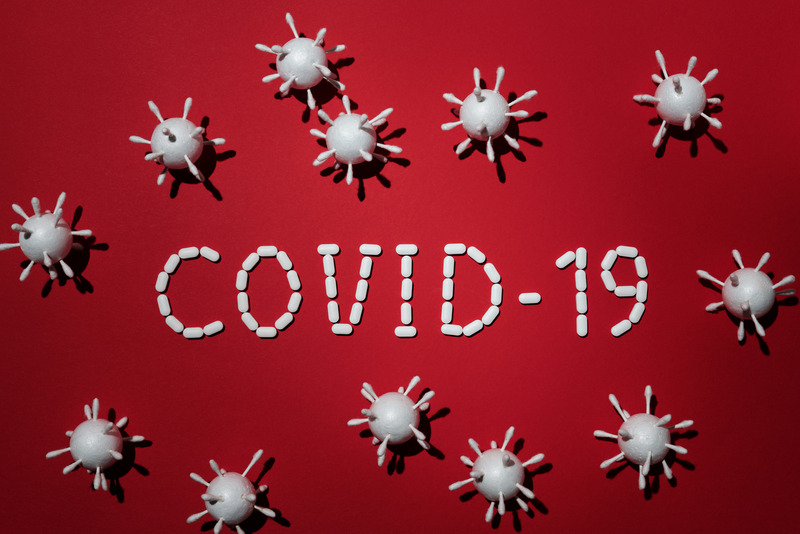Vitamin B12-rich food is essential to a diet that plays a crucial role in maintaining healthy nerve cells and red blood cells.
However, it can be challenging for vegans and vegetarians to get enough of this vitamin from their diet alone.
Luckily, there is plenty of vitamin B12-rich food that can help you meet your daily requirements.
Check out our ultimate vitamin B12-rich food and start incorporating them into your diet today!

Shellfish – Vitamin B12 Rich Food
Shellfish are some of the best sources of vitamin B12, with clams being the top contender.
Shellfish refers to a broad category of aquatic animals that have a shell or exoskeleton, including
- Crustaceans (such as shrimp, crab, and lobster)
- Mollusks (such as clams, mussels, oysters, and scallops).
While shellfish are known for their culinary versatility and unique flavors, they also offer several health benefits.
Just 3 ounces of cooked clams contain a whopping 84 micrograms of vitamin B12, which is more than 1,400% of the daily recommended intake!
Other shellfish is one of the best vitamin b12 rich food that is high in vitamin B12 including oysters, mussels, and crabs.
Shellfish are highly nutritious and provide essential vitamins, minerals, and proteins. They are particularly rich in vitamins B12, A, and D, as well as minerals like iron, zinc, selenium, and iodine. They also contain omega-3 fatty acids, which are beneficial for heart health.
Shellfish are also a good source of high-quality protein. Protein is essential for muscle growth and repair, hormone production, and immune function.
Some varieties of shellfish, such as shrimp and crab, contain omega-3 fatty acids. Omega-3s are important for brain health and may help reduce the risk of chronic diseases.
However, it’s important to note that shellfish can also be high in cholesterol, so it’s best to consume them in moderation.
Liver and Organ Meats
The liver and other organ meats are also great sources of vitamin B12.
Liver and organ meats, such as liver, kidneys, and heart, have been consumed in various cultures for centuries and offer several nutritional benefits.
While they can be an acquired taste and may not be suitable for everyone, they are considered highly nutrient-dense.
Liver and organ meats are packed with essential nutrients, including vitamins A, B12, D, E, and K, as well as minerals such as iron, zinc, selenium, and copper. They are particularly known for their high vitamin A and B12 content.
A 3-ounce serving of cooked beef liver contains about 70 micrograms of vitamin B12, which is more than 1,100% of the daily recommended intake.
Other organ meats that are high in vitamin B12 include the kidneys and the heart. Vitamin B-rich food is very helpful for energy production, brain function, and red blood cell formation.
Organ meats, such as the liver and kidneys, are excellent sources of iron, a vital mineral involved in oxygen transport and the formation of red blood cells. Consuming iron-rich foods can help prevent iron deficiency anemia.
In summary, liver and organ meats can be a valuable addition to a well-rounded diet, providing a wide range of vitamins, minerals, and other essential nutrients. However, they should be consumed in moderation and in accordance with individual dietary preferences and health considerations.
Fish and Seafood – High Nutritional Value
Fish and seafood are excellent vitamin B12-rich food. Some of the best sources include clams, mussels, and crab. Fish and seafood are a diverse group of aquatic animals that are widely consumed for their nutritional value and taste.
They are excellent sources of high-quality protein, essential omega-3 fatty acids, vitamins, and minerals.
A 3-ounce serving of cooked clams contains about 84 micrograms of vitamin B12, which is more than 1,400% of the daily recommended intake.
Other fish and seafood high in vitamin B12 include salmon, trout, and tuna. Canned fish, such as sardines and anchovies, are also good sources.
Regular consumption of fish and seafood has been linked to various health benefits.
Some individuals may have allergies or sensitivities to fish and seafood, so it’s crucial to be aware of potential allergic reactions. Additionally, certain species of fish may contain higher levels of mercury or other environmental contaminants, so it’s advisable to follow local guidelines on fish consumption, particularly for pregnant women and young children.
Beef and poultry
Beef – Vitamin B12-Rich Food
Beef and poultry are also great sources of vitamin B12. Beef and poultry are two commonly consumed types of meat that provide significant nutritional value.
Beef refers to meat obtained from cattle. Common cuts of beef include steak, roasts, ground beef, and beef ribs. Different cuts have varying levels of tenderness, flavor, and fat content.
Beef is a rich source of high-quality protein, essential amino acids, vitamins (such as B vitamins), and minerals like iron, zinc, and selenium. However, beef can also be higher in saturated fat compared to other meats, so it’s important to choose lean cuts and moderate portion sizes.
Poultry – Vitamin B12-Rich Food
Poultry refers to domesticated birds raised for meat, primarily chicken and turkey. Chicken is the most commonly consumed poultry meat worldwide. Poultry is available in various forms, including whole birds, parts (such as breasts, thighs, and drumsticks), ground meat, and processed products like sausages or nuggets.
Poultry is an excellent source of lean protein, vitamins (including B vitamins), and minerals like phosphorus and selenium. Chicken and turkey are generally lower in saturated fat compared to beef, making them a healthier choice for individuals concerned about heart health.
Both beef and poultry can be enjoyed as part of a balanced diet. It’s advisable to choose lean cuts of beef and poultry, trims visible fat, and practice moderation in portion sizes to maintain a healthy and varied diet.
Additionally, selecting grass-fed or organic options and supporting sustainable and ethical farming practices can be beneficial.
Dairy products – Best Vitamin B12-Rich Food
Dairy products are a great vitamin B12-rich food, especially for those who follow a vegetarian or vegan diet.
Dairy products are derived from the milk of mammals, primarily cows, but also goats, sheep, and buffalo. They are widely consumed and offer various nutritional benefits.
Here’s some information about dairy products
Milk-Rich Source of Vitamin B12
Milk is a versatile dairy product that serves as the base for many other dairy products. It contains essential nutrients like calcium, protein, vitamins like B12, and minerals like phosphorus.
Milk can be consumed as is or used in cooking, baking, and making other dairy products.
Cheese – Good Source of Calcium, Protein, Vitamins, and Minerals
Cheese is made by coagulating milk and separating the solid curds from the liquid whey. It comes in numerous varieties, flavors, and textures, ranging from soft and creamy to hard and aged.
Cheese is also a good source of vitamin B12, with Swiss cheese containing about 0.9 micrograms per ounce and mozzarella containing about 0.7 micrograms per ounce.
Cheese is a rich source of calcium, protein, vitamins, and minerals. Common types of cheese include cheddar, mozzarella, Swiss, feta, and Parmesan.
Yogurt
Yogurt is produced by fermenting milk with live bacteria cultures, which convert lactose (milk sugar) into lactic acid. This process gives yogurt its tangy flavor and creamy texture.
Yogurt is known for its probiotic properties, which contribute to gut health. It is also a good source of calcium, protein, vitamins, and minerals. Greek yogurt, in particular, is strained to remove whey, resulting in a thicker, protein-rich product.
Butter
Butter is made by churning cream, which separates the milk fat from the liquid buttermilk. It is commonly used as a cooking and baking ingredient for its rich flavor and creamy texture.
Butter is s also a good source of fat, vitamins such as B12, and minerals.
While butter contains saturated fat, it also provides small amounts of vitamins A, D, E, and K.
In conclusion, some people may also need to be cautious due to specific dietary restrictions or health conditions. It’s advisable to consult with a healthcare professional or registered dietitian to determine the suitability and portion size for your individual needs.

